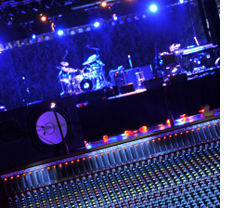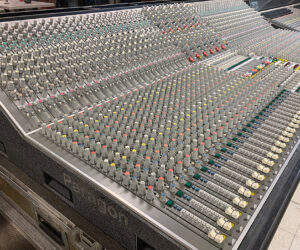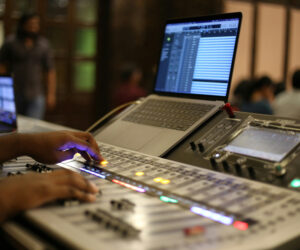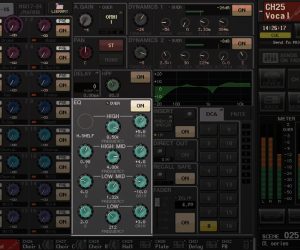As a long-time engineer who has mixed everywhere from small clubs to television to arenas and amphitheaters, I’ve picked up some invaluable insight over the years.
One of the toughest gigs for a sound person has to be going on tour with a band playing smaller clubs, where sound systems and related equipment can range from less than stellar to downright scary.
If you find yourself in this position, all is not lost. Here are some tricks I’ve learned that have come in quite handy.
Before the tour even begins, make things easy for yourself and your act by doing these small things and believe me, your life will be much easier in the long run.
1) Buy several microphone cables and make yourself a drum loom (snake) and label both ends (i.e., kick, snare, hats, rack, rack 2, floor, overhead L, overhead R).
Even if you’re in a venue that has a limited amount of channels, at least you know that YOUR mic cables work, and it also takes the guesswork out of the clubs’ mic cables working or not.
It also saves you time by not having to run individual cables for each channel. Everything is already loomed up and ready to go and the in-house engineer will love you for this because it’s less work and cabling for him.
Plus he gets to go home a little earlier at the end of the show instead of wrapping up all of those mic cables!
2) Rack mount as many direct boxes as you can to keep your stage clean, and already have mic cables run and labeled for these as well. On my current tour, the only thing I need from the venue is one direct box, two Shure SM57 mics for guitar amps and three condenser mics for my hats and overheads for the drums.
3) Carry your own drum and vocal mics if at all possible! With these, at least you know from night to night what your drums and vocals are SUPPOSED to sound like. A little consistency is always a great thing.
Sharing germs with all of the other acts who may have come in contact with the in-house mics is not a good thing. If you have to use the in-house mics, I strongly advise carrying a small bottle of Listerine to clean these mics before your act takes the stage.
4) Carry drum claws for your drum kit. Along with your own drum mics, you can cut your setup and tear-down time in half by not having to position mic stands (and many clubs don’t have a lot of stands).
5) If at all possible, carry your own house (and/or monitor) rack. Many clubs don’t have enough compressors or gates, so by carrying your own, you can be one step ahead of the game. Carrying a reverb and/or delay unit will also help you bring consistency to each show.
6) If you know of a particular club that is particularly notorious for bad sound, arrive earlier than usual and spend an extra hour or so tweaking the system, filtering out bad cables, bad channels on the console, while also pre-wiring the stage before the band shows up. This little bit of extra time can mean the difference between a REALLY bad sounding show and a show where people will compliment you on what a great job you did with the sound.
7) Send each venue’s in-house engineer – well in advance – your CURRENT stageplot and input chart. If at all possible, get that person on the phone and inquire about the sound system and ask about bad channels on the console, are all of the monitors working, etc. You’ll walk in knowing what to expect, and save a lot of headaches.
8) NEVER complain about a lousy system you’re mixing on. Nine times out of 10, the in-house engineer has heard it all before and it’s usually out of his control as to making fixes or being able to purchase equipment for the system’s upgrade.
9) If you see problems with a system, by all means jump in and fix those problems if you have time. The in-house person will love you for it, and the next time that you roll through, he’ll remember you… and your day will go MUCH smoother!
David Norman has served as tour/production manager and/or mixed such acts as Matchbox 20, Roger Daltrey, The British Rock Symphony, Ani DiFranco, The Newport Folk Festival Tour, The Neville Brothers, Arrested Development, Peabo Bryson, Michael Hedges, They Might Be Giants, and Susanna Hoffs.















